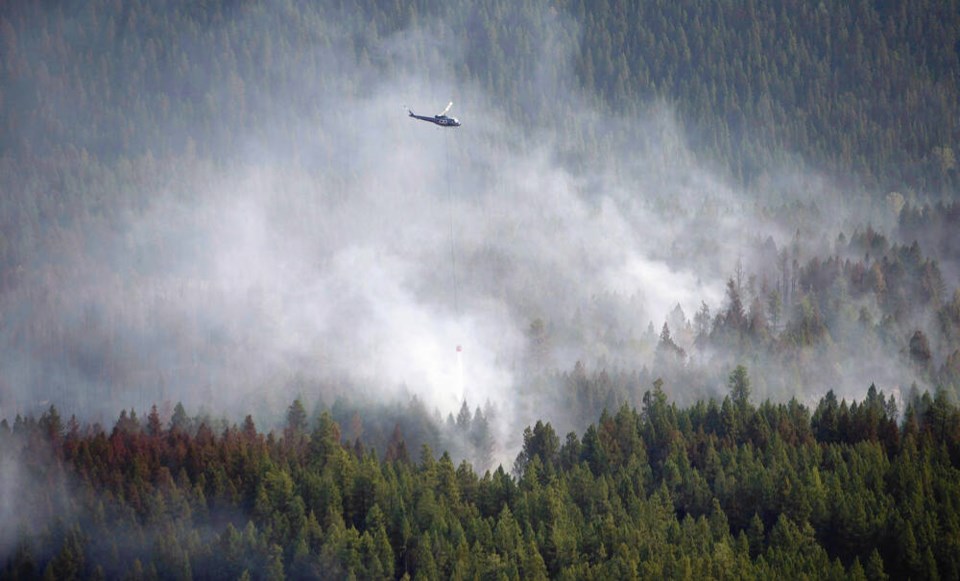Last week, I discussed our failure to meet many of the Millennium Development Goals by 2015, in particular those dealing with the environment.
Since then, we have missed other important environmental goals. An independent scientific report prepared for the recent Stockholm+50 conference examined progress across a range of environmental goals agreed since 1972, and found that “typically only one-tenth of targets show significant progress or can be considered achieved.”
Moreover, it is expected that quite soon we will miss a vitally important target. In about nine years, at current rates, we will have emitted enough greenhouse gases to miss the target to keep the rise in global heating below 1.5°C.
Indeed, as UN Secretary General Antonio Guterres commented in April, responding to the latest IPCC report: “We are on a pathway to global warming of more than double the 1.5-degree limit agreed in Paris.”
When the MDGs expired in 2015, the nations of the world adopted a new and broader set of goals — the Sustainable Development Goals (SDGs).
There are 17 SDGs with 169 targets, and they are meant to be achieved by 2030. But the 2022 progress report, released in May, noted we are not doing well, due to “the multiple and interlinked global crises we are facing — the COVID-19 pandemic, the climate crisis and the impacts of the conflict in Ukraine and elsewhere.”
In an advance version of his upcoming remarks on the 2022 SDG report, Guterres wrote: “It is clear — we are moving in the wrong direction … We are moving backwards in relation to the majority of the Sustainable Development Goals”.
Poverty increased, with women disproportionately affected, while basic education and essential health services were disrupted.
When it comes to the environmental goals in the SDGs, the Stockholm+50 science report noted that the UN Environment Program reported in 2021 that “there are negative trends for material footprints, sustainable fish stocks, forested area and endangered species.”
Within this global picture of the world going backwards, sa���ʴ�ý is not faring well. We are “moving backwards in relation to the world on our SDGs progress,” falling from 21st to 29th in world rankings, said Prof. Bruce Frayne of the University of Waterloo, chair of the Sustainable Development Solutions Network sa���ʴ�ý.
The report on sa���ʴ�ý shows we face major challenges with respect to climate change, protection of life on land and the creation of partnerships for the SDGs.
Regarding the latter, Frayne notes that we need to see “more dedication to the SDGs by all levels of government, in particular from provincial governments that are largely absent at the SDGs table.”
So far, eight years before the 2030 deadline, sa���ʴ�ý has only achieved one goal — quality education — and is only on track for two others — no poverty, and industry innovation and infrastructure.
We are going backwards on responsible consumption and production, and making no progress on protecting life under water.
And while making moderate progress on most of the SDGs, we still face major challenges for another four goals: zero hunger, good health and wellbeing, gender equality, and decent work and economic growth.
It is the latter goal that creates problems with respect to the environmental goals.
Goal 8 calls for continued economic growth. But in a 2019 article in the journal Sustainable Development, Jason Hickel, an economic anthropologist and Senior Visiting Fellow at the London School of Economics, showed that Goal 8 translates into a need for “continued global economic growth equivalent to 3% per year.”
However, he shows that such a growth rate will make it impossible to reduce global resource use or to achieve “reductions in CO2 emissions rapid enough to stay within the carbon budget for 2°C.”
In other words, he concludes, “Goal 8 violates the sustainability objectives of the SDGs.”
Or as Guterres put it in his opening remarks at the Stockholm+50 conference: “Earth’s natural systems cannot keep up with our demands.”
The only way to resolve this inherent contradiction, Hickel suggests, is to scale down resource and energy use, especially in high-income countries, and reduce inequality within and between nations.
Doing so while maintaining a decent quality of life is our main challenge in the coming years.
Dr. Trevor Hancock is a retired professor and senior scholar at the University of Victoria’s School of Public Health and Social Policy



